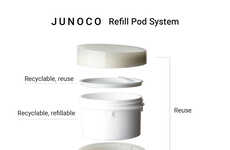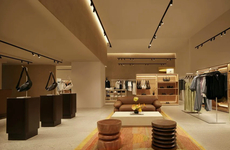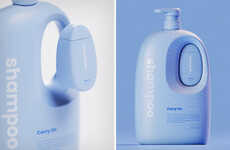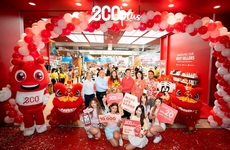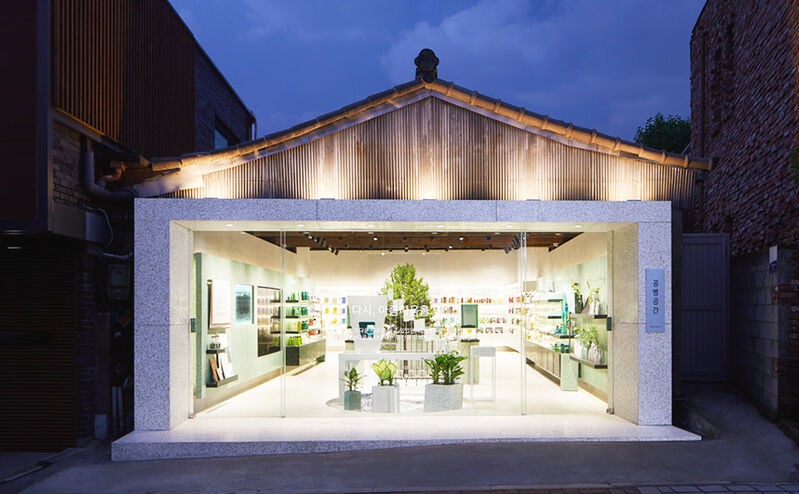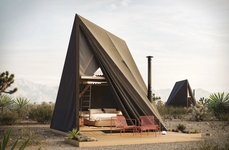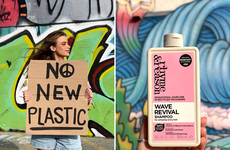
This Innisfree Store Utilizes Bottles in its Architectural Design
Debra John — September 18, 2024 — Social Good
References: innisfree & moodiedavittreport
Amorepacific's Innisfree store located in Samcheong-dong, Seoul has been dubbed ‘Gong Byeong Gon Gan,’ or ‘Recycled Bottle Store,’ demonstrating Amorepacific’s focus on sustainability, with "70% of the store’s structure built using 230,000 recycled cosmetics bottles." This aligns with the company’s broader initiative to transition to a more sustainable product life cycle, encompassing product development, packaging, retail, and recycling—so that all aspects of the brand's practices are impacted and driven by sustainability.
Additionally, Amorepacific has implemented measures to "reduce overpackaging, such as using smaller boxes for its products and an intention to swap out boxes and tape for paper packing tape and recycled kraft boxes." As such, this Innisfree store integrates recycled materials into both its exterior and interior design, including product displays and shelving. This approach reflects the company's efforts to reduce its environmental impact by creating retail spaces that incorporate sustainable materials and practices throughout the value chain.
Image Credit: Amorepacific / The Moodie Davitt Report
Additionally, Amorepacific has implemented measures to "reduce overpackaging, such as using smaller boxes for its products and an intention to swap out boxes and tape for paper packing tape and recycled kraft boxes." As such, this Innisfree store integrates recycled materials into both its exterior and interior design, including product displays and shelving. This approach reflects the company's efforts to reduce its environmental impact by creating retail spaces that incorporate sustainable materials and practices throughout the value chain.
Image Credit: Amorepacific / The Moodie Davitt Report
Trend Themes
1. Sustainable Store Design - Retail environments that use recycled materials in their construction offer a glimpse into the future of eco-centric architectural practices.
2. Eco-friendly Packaging - The shift towards minimalistic and recyclable packaging materials is revolutionizing traditional packing methods and reducing environmental footprints.
3. Circular Economy Initiatives - Programs focusing on product life cycle management and material reuse are spearheading the movement towards more responsible consumption patterns.
Industry Implications
1. Retail - Brick-and-mortar stores transforming their interiors with sustainable materials are setting new standards in retail design.
2. Cosmetics - The beauty industry is witnessing a surge in brands prioritizing sustainable packaging and product designs to meet eco-conscious consumer demands.
3. Architecture - Architectural firms embracing recycled materials in their building projects are driving innovation in sustainable construction.
8.1
Score
Popularity
Activity
Freshness


